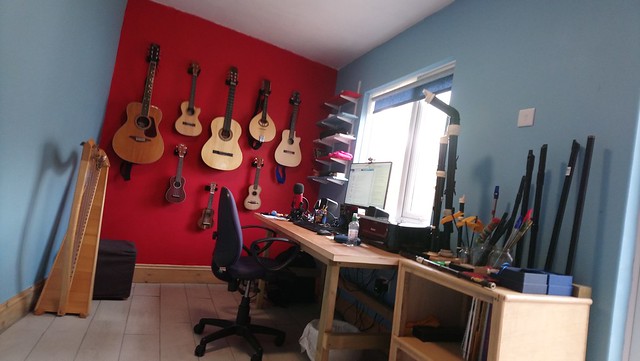Podcast: Play in new window | Download
In this episode we uncover links between words for country and land in Celtic languages, and words for garden, wood and related things in other languages.

Bodnant Garden / Gardd Bodnant
The Proto-Celtic word *mrogis means border(land), march, mark, region, country, territory or province, and comes from Proto-Indo-European *mórǵs (frontier, border) [source]
Related words in the modern Celtic languages include:
- brugh = dwelling, mansion in Irish
- brugh [bruh] = broch (a type of Iron Age stone tower with hollow double-layered walls – see below), fortified tower, large house, mansion, fairy mound in Scottish Gaelic
- brogh = broch in Manx
- bro [broː] = region, country, land, neighbourhood, border, limit, boundary in Welsh
- bro = country, land in Cornish
- bro [broː] = counry(-side) in Breton
For more about words for border, land, country and related things in Celtic languages, see the Celtiadur post: Region and Country
Words from the same Proto-Celtic root, via Gaulish *brogis and Latin brogi-/broges, include brolo (vegetable garden, orchard, grove) in Italian, and breuil (wood, copse, coppice) in French, bröol (a lawn or vegetable garden surrounding house) in Cimbrian, and Brühl (enclosed land, (wet/swampy) meadow) in German (found mainly in place names).
Words from the same PIE root include margin, and march (a border region; formal, rhythmic way of walking) in English, and marge (margin, markup) in French, marca (brand, make, trademark) in Italian [source], Mark (a fortified border area, marches) in German, and mark (field) in Danish, as in Denmark [source].
Radio Omniglot podcasts are brought to you in association with Blubrry Podcast Hosting, a great place to host your podcasts. Get your first month free with the promo code omniglot.
















